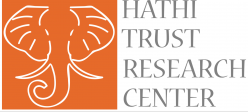This fall we are piloting the workshop curriculum at all five partner institutions. In this post, librarian Amanda Henley shares her thoughts after leading a DDRF workshop at the University of North Carolina at Chapel Hill. Feedback from all of the partners along with the assessment forms collected from attendees will inform development of our next iteration of workshop materials for spring 2017. You can read more about the modular DDRF curriculum in this update.
Q. Was there anything that worked particularly well in the workshop?
A. Our participants were very interested and engaged. They had a lot of questions and expressed interest in learning more. We had two presenters, which also worked well. Jacob Hill is a 5th year PhD student in the School of Information and Library Science. It was great working with him, and he did an excellent job presenting the material. We also had two floaters that were available to assist with questions as we went through the exercises. Finally, we held the workshop in one of our computer labs, so we were able to load the software and save data locally beforehand to help things go smoothly. It was helpful for everyone to have a uniform computing environment.
Q. Was there anything that surprised you during the workshop?
A. I was surprised at how many UNC Librarians are interested in learning more about text analysis! Our registration filled up almost immediately, and several staff members sent follow up emails asking if it will be taught again. During the workshop, I was surprised that the modules took longer than we expected. We ran out of time and I had to teach the last module very quickly. Additionally, I didn’t anticipate how difficult it would be to see the command line for the participants. We used a standard projector and needed to remember to increase the font size for each of the exercises.
Q. If you could change one thing that you did in the workshop to make the sessions more effective, what would it be?
A. I would like to make the workshop more interactive. Librarians are experts at learning from one another, and we could capitalize on everyone’s expertise if we made the workshop a bit more interactive. It might be interesting to provide participants an assignment in advance: provide a list of text analysis research papers, blog posts, etc. from a variety of disciplines and have the participants choose one, answer a set of questions, and share their findings at the beginning of the workshop. That would make the content more relevant to the participants and it would make it easier on the presenter.
Q. What tips would you give to somebody else teaching similar workshops?
A. If possible, install the software in advance and save the data locally. Remind your participants about the accounts they will need the day before the workshop. Use Ctrl + to increase the font size on the screen. It is very difficult to see the command line from the back of the room!
Q. How would you encourage a fellow librarian to play a more active role in supporting data-driven research?
A. Play around with the tools and apply digital methods to your own research. If you need incentive, schedule to teach a workshop on something you want to learn. If you can, sit in on consultations given by your peers. Here in the Davis Library Research Hub we are happy to have our colleagues from other departments sit in on our data-intensive consultations. We find that when they do, we learn just as much from them as they learn from us.
